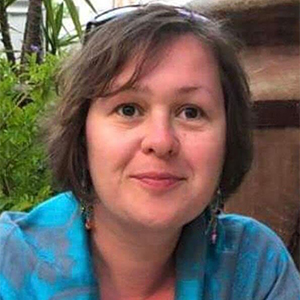
Magdalena Kitlowska
Magdalena Kitlowska, is a cross-cultural psychologist, CBT therapist and Advanced Certified Schema Therapist (Individual and Group). She is involved with Schema Therapy since 2005, she translated many instructional demonstrations and materials into Polish. For over 20 years in her clinical practice she conducted many group processes with different psychiatric presentations as well as delivering individual Schema Therapy. As an ISST Trainer/ Supervisor she is actively teaching and supervising in Poland and abroad.
Through the labyrinth of modes toward healthy, resilient co-therapists’ relationship in Group Schema Therapy
Co-Presented with Paul Kasyanik
Healthy co-therapy relationship beside the professionals being familiar with the ST model and techniques, is essential vessel to deliver successful group experience. There is little literature or training dedicated to the problem of the co-therapy and novice therapists might feel lost and confused on how to build healthy bond with each other. Unrelenting Standards, Emotional Deprivation and Self-Sacrifice schemas so typical for psychotherapists can really make co-therapy difficult in terms of creating an atmosphere of healthy honest feedback, sharing emotions- especially adult expressions of anger, supporting development and autonomy. Without those vital components of an Healthy Adult active in co-therapy relationship most fundamental role of GST (recreating a healthy family) might be compromised.
This workshop focuses on increasing awareness of own schemas and modes affecting the co-therapeutic bond and also offers ways to heal our own reactions. Successful co-therapy starts with recognizing our own triggers, schemas and expectations from the partner even before we ever face the client during pre-treatment phase of the GST.
During the workshop we would be examining typical mode clashes in co-therapy pair starting with interviewing stage of therapy, recognising loyalty and polarisation, that might come with the group work and resolving it with the benefit for the group and own development. The presenters would be discussing case vignettes and encouraging the participants to take part in exercises to maximize their learning.

